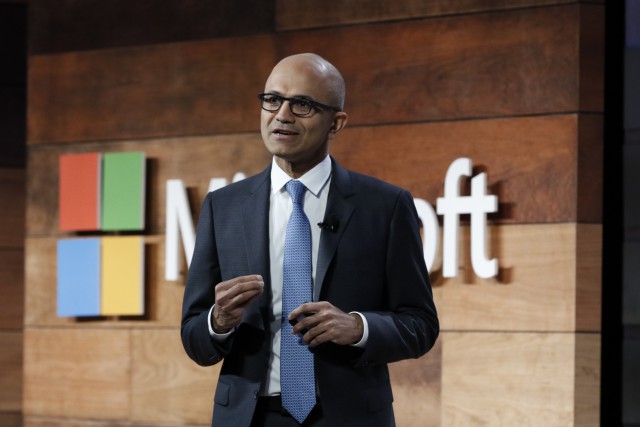

CEO Satya Nadella
Microsoft customers have criticised the company after it announced that the launch of Azure Stack, Microsoft’s platform for building private clouds that operate in the same way its public cloud operates, has been delayed until mid-2017.
Microsoft said that the delay comes after deciding it wants to roll out Azure Stack through certified hardware partners, rather than letting customers run the software on any hardware they want to.
“Wow, this is so wrong on many levels, why would you only allow installs on certified hardware? That makes no sense,” replied one user on the blog post that Microsoft used to announce the delay.
“This actually pisses me off,” said another.
Microsoft released the Azure Stack technical preview in January, but between then and now, enterprise cloud vice president Mike Neil said that data from feedback received means Microsoft has changed its tune on when Azure Stack will move into general availability.
Essentially, Microsoft’s argument is that its customers should have as little complication in running Azure Stack as possible, so it will team up with partners such as Dell, Lenovo and HPE to flog Stack certified hardware.
“To best meet these requirements, we will prioritize delivering Azure Stack as turnkey integrated systems in the initial general availability (GA) release, combining software, hardware, support and services in one solution,” wrote Neil in the blog post.
“As we do this, we will leverage our deep experience in both cloud and enterprise data centre environments to optimize the customer experience.”
“OK, now the door is totally open for OpenStack. As always, you don’t really listen your customers. You want to be more popular than AWS around startups and/or any kind of possible customer? Stop targeting only major accounts,” said Fabien Dibot, replying the Neil’s blog post.
“What an anti-climax,” said another poster. “Such expectation, so many possibilities for customers and great opportunities for partners, big and small. Azure Stack now joins the Azure Pack fizzled out destiny…. disappointing.”
Over time, Microsoft said customers can expect the the ecosystem of supported systems to broaden, but gave no date as to when other companies will sell Azure Stack hardware. This could mean if customers don’t want to use Azure Stack from Dell, HPE or Lenovo, they might have to wait until 2018 at the earliest.
“Microsoft is committed to ensuring hardware choice and flexibility for customers and partners,” said Neil.
“To that end we are working closely with the largest systems vendors – Dell, HPE, Lenovo to start with – to co-engineer integrated systems for production environments. We are targeting the general availability release of Azure Stack, via integrated systems with our partners, starting mid-CY2017.”
TechWeekEurope has contacted Microsoft to find out how it thinks the decision will impact its business, but had not received a response at the time of publishing.
Meanwhile, as customers previously ready to roll out Stack this year now twiddle their thumbs in wide-eyed shock, Microsoft advised on the next steps that should be taken in preparation for Azure Stack in 2017.
According to Neil, customers should use Azure services already available to develop their apps today.
“Since Azure Stack and Azure share a unified application model with API consistency, these efforts will accrue to Azure Stack at general availability,” he said.
Customers should also splash out for the Microsoft Cloud Platform Solution (CPS), too.
“Customers ready to deploy an Azure-consistent cloud on their premises now should buy Microsoft Cloud Platform Solution (CPS). Customers will be able to use Azure Stack to manage CPS resources thereby preserving investments in CPS. Customers should also check out Windows Server 2016 and deploy Hyper-V as that is the host virtualization technology used in Azure Stack,” he said.
New chapter for famous name from Internet's early days, Napster, has been acquired and will…
Solving not-spots? Ofcom proposal to make UK the first European country to allow ordinary smartphones…
Pioneering robotaxi service from Alphabet's Waymo to go live in Washington DC next year, as…
Dozens of Chinese firms added to US export blacklist, in order to hamper Beijing's AI…
Chinese rival BYD overtakes global revenues of Elon Musk's Tesla, as record number of Tesla…
Messaging app Signal in the headlines after a journalist was invited to a top secret…